Exclusive Breast Feeding: Knowledge, Barriers and Practice among Antenatal Clinic Attendees at a Tertiary Hospital in a Developing Country
Keywords:
Exclusive breastfeeding, Practice, Perception, Intention, BarriersAbstract
Background: Breast milk is natural and readily available. Exclusive breastfeeding has been found to be beneficial to infants, mothers, and the nation at large. However, the practice of exclusive breastfeeding is suboptimal in the developing and developed world. The objective of this study was to assess the knowledge, practice, and barrier to the practice of exclusive breastfeeding among pregnant women attending the antenatal clinic at the University of Ilorin Teaching Hospital. Methods: This was a cross-sectional study among consenting pregnant women attending the antenatal clinic at the University of Ilorin Teaching Hospital. Pregnant women with at least one previous live birth were selected using simple random sampling. Data were collected with the aid of a pretested questionnaire. Sociodemographic information, information on knowledge, perception, and intention to practice exclusive breastfeeding were obtained and analyzed using IBM-SPSS statistics version 23. Association between categorical variables was determined using chi-square. Results: The majority of the respondents were within the age range of 30-39 years. All respondents were aware of exclusive breastfeeding and 215 (86.0%) of them had good knowledge of exclusive breastfeeding. Of the participants that had practiced exclusive breastfeeding in their previous pregnancies 151(60.4%). There was a statistically significant association between the previous practice of EBF and the intention to practice it after the delivery of the index pregnancy (p = 0.003). Resumption to work was the commonest barrier to the practice of Exclusive Breastfeeding. Conclusion: Respondents had good knowledge, and positive perceptions towards exclusive breastfeeding, and the majority practiced exclusive breastfeeding.
Downloads
Published
How to Cite
Issue
Section
License
Copyright (c) 2022 A G Akera-Adegboyega, F I Abdul, G G Ezeoke, A S Adeniran, O A Olabinjo, O B Lawal

This work is licensed under a Creative Commons Attribution-NonCommercial-ShareAlike 4.0 International License.


 Contact Us
Contact Us Editorial Team
Editorial Team Join As A Reviewer
Join As A Reviewer  Request For Print Copy
Request For Print Copy Indexing Information
Indexing Information


 Cprint Publishers
Cprint Publishers